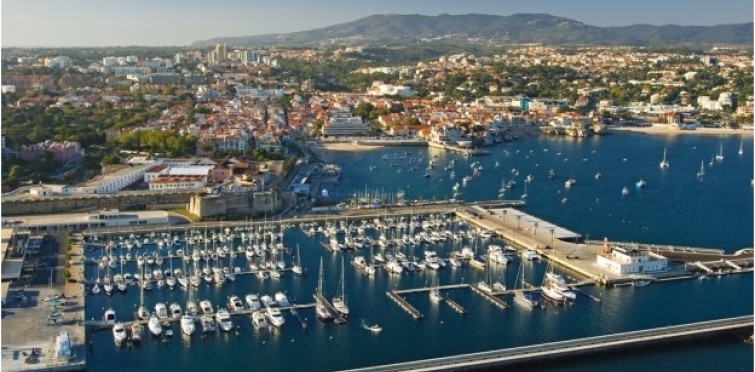Está aqui
International Press recommends Cascais

The radio stations broadcast Porsche advertisements. The houses are sold for several million. Celebrities and bankers act neighbourly and occupy entire blocks trivializing fame. The streets are spotlessly and the green spaces well maintained. Welcome to the Hamptons, the cosmopolitan seaside resort 160 km from the "big apple" and one of the favourite destination for New Yorkers.
What do the Hamptons have to do with Cascais? According to Paris Match, a lot. In an article recently published by the French magazine that sells more than half a million copies a week, Cascais is recommended as a "chic getaway", a trip that has the suggestive title: “In the Portuguese Hamptons.” Paris Match was not indifferent to the culture, the well maintained heritage, the sophistication and relaxed way of life of Cascais, and reinforces the idea: Cascais "is" a breath of the Riviera between St Tropez and New England".
The beaches with a "California" atmosphere, the spots for surfers and the exclusive golf courses have also been noticed by whoever signs the text. Paris Match takes the comparison seriously and if the Hamptons are inhabited by famous people like Madonna or Calvin Klein, the magazine notes that Cascais is the home of Philippe Starck, the globally famous designer - and, we say, the French weekly could add a page full of other famous names who have chosen to live in Cascais. Why do they do this? The silhouette of Cascais is attractive but what really counts when making a decision is the quality access network, an orderly and structured territory with infrastructures, public and private education of excellence, offering diversified healthcare and a well maintained environment.
Beyond the comparisons, there is a common message transmitted by both Paris Match and other international media: Cascais is a desired place. Like St Tropez or the Hamptons. And it is only a desired place, firstly, because it offers both quality of life to those who come from outside and to those who are part of its community.
This is one of the points underlined by Ben Fogle, public figure of British Television on BBC, ITV or Chanel 5, who explains in the pages of the Daily Telegraph, the reason for his passion for Cascais. Fogle got married in Portugal and part of his honeymoon was spent “in a place which the locals call “Costa do Sol” (Sun Coast). "Unlike the Spanish Costa del Sol, this is a large and relatively unspoiled coastline", considers the Brit who clearly highlights the value of environmental preservation. Fogle wrote what the jury of the International Views Awards also saw and which made Cascais earn, this year, the award for most sustainable destination in the world at the Tourism Fair in Berlin thanks to the intervention on the Guincho dune system.
Speaking of Guincho, and in sustainability, there is a large global media which places Guincho among the best urban beaches in Europe. We are speaking on Cable News Network, the full name of the North American CNN.
Cascais conquers the demanding international press through its natural wonders, "the idyllic beaches" in the opinion of Fogle, or its museums such as Casa das Histórias Paula Rego (Paula Rego House of Stories) which was considered one of the finest small museums in Europe. But there is more than appearances to convince the world. Those who visit the town feel its soul, feel the importance of its rich history. A tolerant, adventurous, aristocratic, universalist, literary story. One that is known only if it is lived. This requires an immersion in the local culture. And that is what ‘Le Monde' did, between gins in Hotel bars, when it recovered the origin of history's most famous secret agent: “My name is Bond, James Bond”. This is what the French daily newspaper wrote concerning the Cascalense origins of 007. It was at Casino Estoril, in a difficult period for Europe that transformed Estoril in a base for spies, diplomats, kings and queens without a throne, that Ian Fleming created the first story of Bond - the real Casino Royale. "The aura that inspired Ian Fleming is still alive and well in the ‘resort' of Cascais", writes Le Monde. It is this soul that ‘El País' also recovers when recalling the times of exile of the Spanish Royal family in a house beside the sea, in Tamariz.
Since then, Cascais has changed because it is no longer only a Town of Kings, Fishermen or Aristocrats. It maintains the memories of that time but it is more than that: it is the best place in the world to live for a day or for a lifetime, for both the 206 thousand citizens who call themselves "cascalenses" and for all the others who one day we will have the pleasure to call neighbour.













